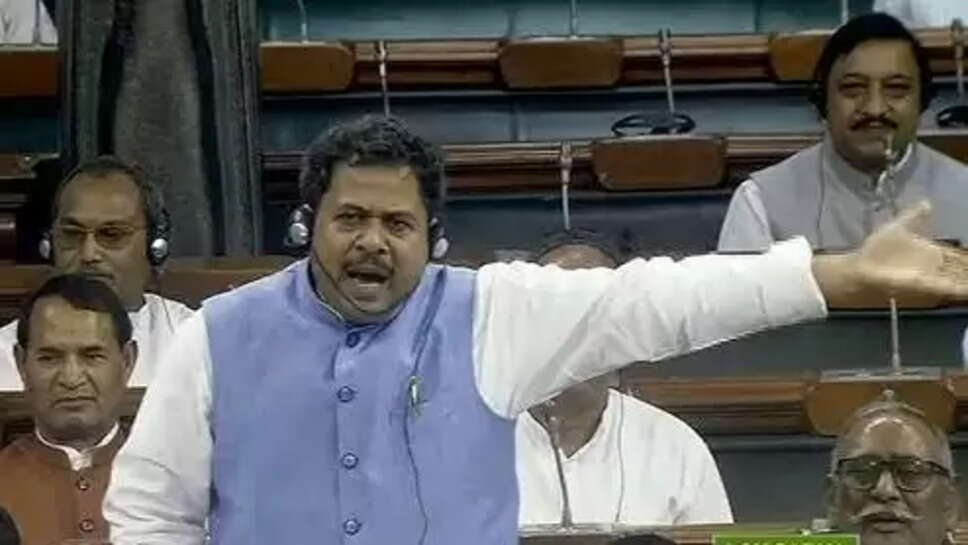EC Under Fire: JD(U) MP Alleges Delay in Lok Sabha Poll Document Process

In a sharp critique of the Election Commission of India (EC), a Member of Parliament from the Janata Dal (United) has raised serious concerns over the timing and execution of the Commission’s recent documentation drive related to the 2024 Lok Sabha elections.
The MP, speaking on record, alleged that the Commission’s demand for official documents nearly a year after the elections concluded has not only disrupted normal parliamentary work but also exposed glaring administrative inefficiencies within the system.
A Year Later, A Paper Chase Begins
The controversy erupted after the Election Commission recently began reaching out to elected MPs from the 2024 Lok Sabha elections, requesting certain official documents and affidavits as part of a post-poll compliance and verification process.
What might have seemed like routine bureaucracy has now snowballed into a larger political debate, after the JD(U) MP stated it took over 10 days just to gather the required documents from various local and state authorities.
"How can you ask for these documents now, when the elections were held over a year ago? What was the EC doing all this time?" the MP questioned in a conversation with journalists outside Parliament. "This last-minute rush is harassment, not governance."
Bureaucratic Delays Add to Frustration
According to the MP, compiling the required paperwork was no easy task. The documents reportedly included:
-
Notarized election expense records
-
Copies of nomination forms and affidavits
-
Verification of criminal cases pending
-
Residential proof and constituency-level declarations
The process involved coordination with local administrative offices, district election officers, and legal advisers, many of whom themselves seemed unclear about the urgency or protocol.
“The election officials at the district level were equally confused,” the MP noted. “They said they never received any prior direction until recently.”
EC’s Response: Routine Procedure or Delayed Oversight?
While the Election Commission has not made a formal statement in response to the JD(U) MP’s criticism, officials familiar with the process have hinted that delays were due to procedural backlogs, especially after a massive national election cycle involving over 900 million voters.
Sources within the EC have suggested that the drive is part of a broader compliance review and archival process, which was affected by both manpower shortages and technology transitions.
However, that explanation has done little to pacify political leaders, many of whom view the EC’s move as both untimely and disruptive.
Parliamentarians Complain of Time Wasted
Multiple MPs across parties—not just JD(U)—have reportedly expressed frustration at the sudden demand for documentation that they assumed had already been submitted or vetted during the election process.
“I had to pause work on constituency matters to chase these papers,” said another opposition MP who did not wish to be named. “This should have been completed during the election result phase, not now when legislative work is at its peak.”
There are also concerns that this document drive may be part of a new trend of post-poll surveillance or oversight, which some lawmakers argue could be used selectively to pressure or intimidate political rivals.
Political Undercurrents at Play?
Though the JD(U) is a part of the NDA alliance and generally aligned with the ruling establishment, this public criticism suggests internal fault lines or at least differing views on the handling of institutional responsibilities.
“This isn’t a partisan issue. It’s about efficiency and timing. You can’t burden MPs with something that should have been wrapped up months ago,” the JD(U) MP emphasized.
Political analysts believe the criticism could also signal growing discomfort among allies of the BJP about the broader handling of democratic processes.
“This is less about documents and more about the perception that key institutions are slipping in performance,” said one observer. “And when even NDA partners are openly questioning the EC, that signals a deeper problem.”
The Bigger Picture: Transparency vs. Timing
At the heart of the issue lies a fundamental dilemma—how to balance institutional transparency with procedural efficiency.
While post-poll compliance checks are necessary to ensure clean elections, critics argue that the Election Commission must implement such processes promptly and with minimal disruption to ongoing governance.
“This isn't just about paperwork,” said a former Election Commissioner on condition of anonymity. “It’s about institutional credibility. Delayed audits or compliance drives reflect poorly on both the candidates and the Commission itself.”
Calls for Reform and Streamlining
In the wake of this controversy, several political figures are calling for reform in the way the Election Commission handles post-election formalities.
Some of the proposed changes include:
-
Setting fixed timelines for compliance verification (e.g., within 60 days of poll results)
-
Digitizing all records to minimize paper-based delays
-
Creating a centralized dashboard where MPs and MLAs can track and upload documents post-election
-
Appointing constituency-level compliance officers to handle such matters transparently and efficiently
“If the EC can conduct a nationwide election over 7 phases with EVMs, surely it can also create a smoother document process afterward,” the JD(U) MP said.
A Moment for Institutional Introspection
The dust-up between the JD(U) MP and the Election Commission may seem like a routine bureaucratic squabble, but it raises vital questions about the functioning of India’s electoral and democratic institutions.
Was the delay a result of poor planning, or a systemic lack of urgency in handling post-election affairs? Should public representatives be forced to chase papers a year after winning their mandates?
More importantly, how can institutions like the EC balance their authority with accountability?
As the Lok Sabha continues its legislative sessions and new laws are debated, this episode serves as a timely reminder that democracy doesn’t end at the ballot box—its credibility depends on what follows after.
.jpg)